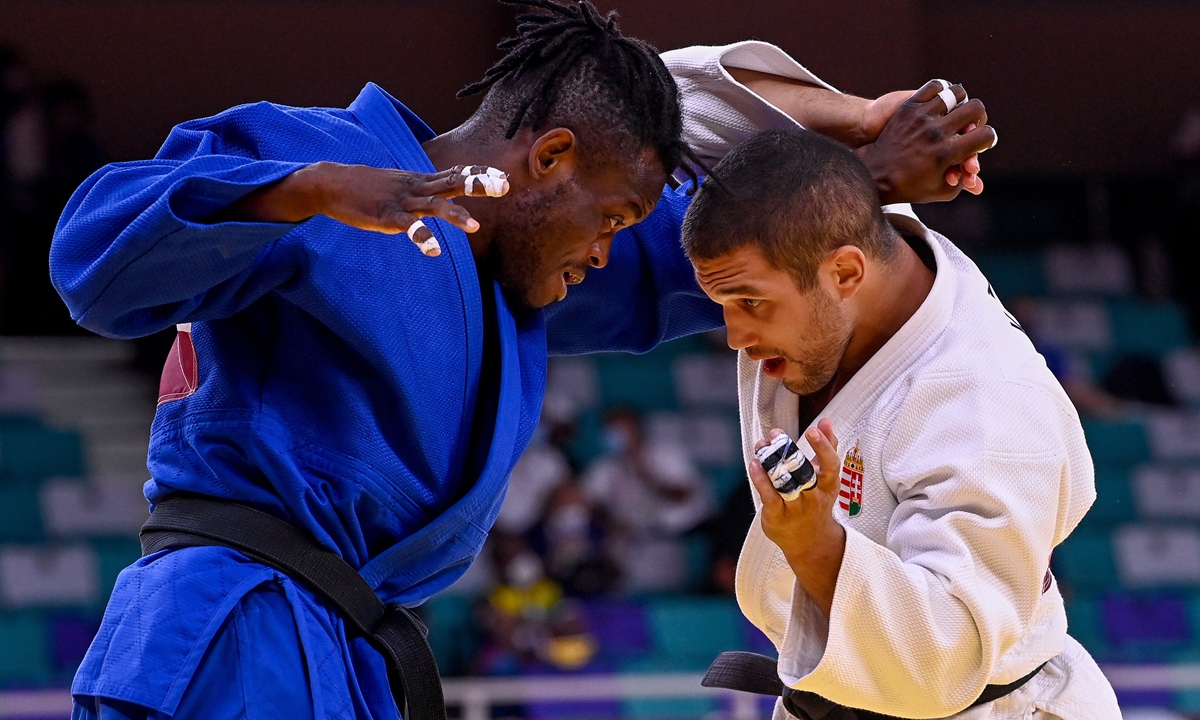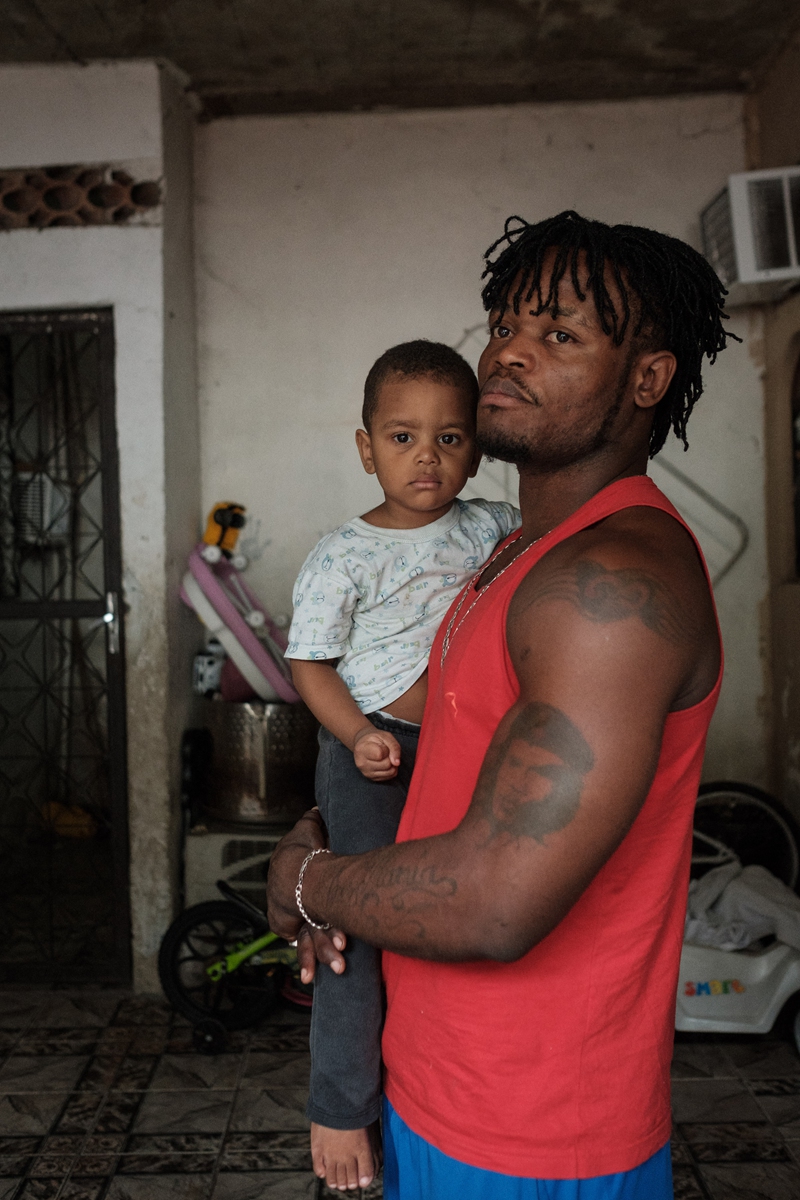SPORT / MISCELLANY
A message of peace and hope
From the rainforest to the Olympics, via the favela: the life of Popole Misenga

Popole Misenga (left) of the Refugee Olympic Team and Krisztian Toth of Hungary fight in the preliminary round of men's judo 90-kilogram category at the Tokyo Olympic Games on Wednesday. Photo: IC
Standing in Nippon Budokan, where Popole Misenga has longed to be since 2016, the 29-year-old judoka enjoyed his second Olympics as a member of the Refugee Olympic Team.
Misenga was born in the Democratic Republic of the Congo, then called Zaire, in 1992. When he was 9, the country's civil war claimed the life of his mother and left him homeless. To flee from the war zone, he survived alone for a week in a rainforest before being rescued and taken to the capital, Kinshasa.
There, at a center for displaced children, Misenga discovered judo. "When you are a child, you need to have a family to give you instructions about what to do, and I didn't have one. Judo helped me by giving me serenity, discipline, commitment and everything," he said.
Thus, he became a professional judoka, but each time he lost a competition, his coach would lock him in a cage for days, feeding him only coffee and bread. Finally, when he was deprived of food and knocked out in the first round at the 2013 World Championships in Rio de Janeiro, he decided to seek asylum.
Second chance
"In my country, I didn't have a home, a family or children. The war there caused too much death and confusion, and I thought I could stay in Brazil to improve my life."
The idea of living in a favela in Rio may sound unpleasant to some, but to others, it meant a second chance in life.
While the neighborhood was dangerous, Misenga was granted asylum in 2014, meaning he was able to legally find a job.
"For me, it was better than anything because it was mine. I managed to get a work permit and it made me legal in the country."
Initially he worked as a truck loader for $10 each day. But that changed in 2015 when he was invited to continue his judo training at a facility to help disenfranchised youths affected by poverty and crime.
"I was called and chosen by the institute," he said. "It gave me the chance to win, to make a life and to escape the violence going on in Rio."

Popole Misenga holds his 2-year-old son Helias at his home in Rio de Janeiro, Brazil, on June 21, 2017. Photo: AFP
After gaining refugee status, he began training at a judo school founded by Flavio Canto, an Olympic bronze medalist."I want to be part of the Refugee Olympic Team to keep dreaming, to give hope to all refugees and take sadness out of them," he said. "I want to show that refugees can do important things.
"I was very happy when I found out I was selected for the IOC Refugee Olympic Team for the 2016 Games. It meant a lot for me, to be able to represent all the refugees in the world on the international sports platform. It gave me strength to represent the millions of people who had to leave their home and country. The Olympics made me famous, people recognized me in the street, they'd say, 'It's that guy in the Olympics!'"
In 2019, Misenga was awarded an IOC Refugee Athlete Scholarship. This meant that he could move with his Brazilian wife and their two children away from the favela and close to his training center, where he trained to compete at his second Olympic Games in Tokyo.
"Now I am a father, I have to do good things. I'm fighting for them, for their lives to be good tomorrow, so they don't have to suffer what I suffered," he noted.
Misenga failed to reach the round of 16 in the men's -90 kilograms, but along with five other judoka with similar life experiences to him, he will represent the Refugee Olympic Team in the mixed team event on Saturday, delivering a message of peace and hope to the world.
Following the success of Rio 2016, a Refugee Olympic Team, including 29 athletes originating from 11 nations, is participating for the second time at the Olympic Games.
